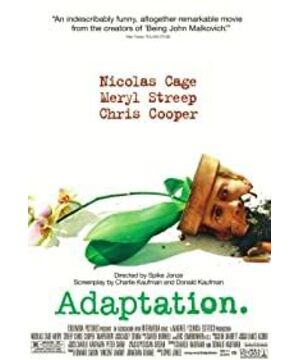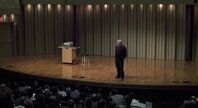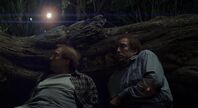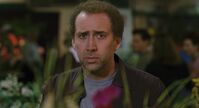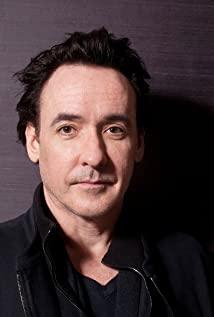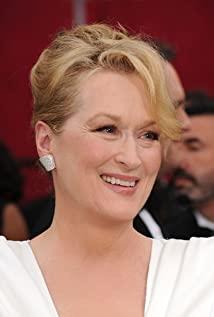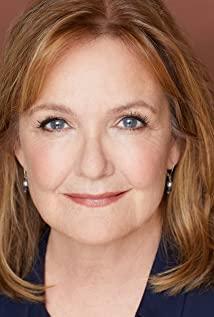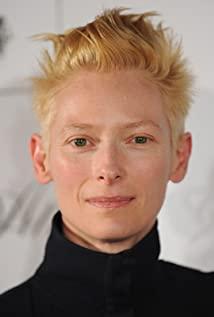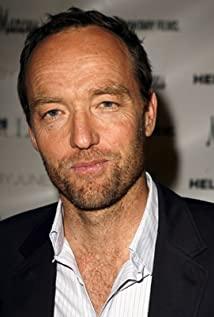It is difficult to understand this film. Readers can sort it out according to what I said. There are three Kaufmans in the film. One is the protagonist, Kaufman. He is adapting the novel "Orchid Thief" into a movie. He wants no stories and conflicts. He expressed his works, but his inspiration was exhausted, and he was even scolded by his mentor McKee, so he imagined a younger brother and used popular methods to create. As Kaufman's thought changed from division to unity, he decided to write the story into a popular story. The second is that Kaufman, the screenwriter who created the screenplay after accepting McKee's reprimand and advice, asked the screenwriter Kaufman to write the story and integrate the previous story of the orchid thief and Susan into a story, the story. Middle Kaufman's younger brother is real, a young man who wants to be a screenwriter. Therefore, the younger brother in the second half is real, and the younger brother in the first half is Kaufman's schizophrenic avatar. Attentive audiences can find that Kaufman and his younger brother appear in public in the first half. Kaufman's "split personality" state is often reflected in the fact that two people only speak in succession, and the person who speaks He Zhi seems to notice only one of them. This is very similar to the performance of all films with split personality, and the younger brother is clearly an independent individual in the second half, and people who communicate with He Qi can clearly see the two brothers. In the story written by Kaufman, Kaufman is the protagonist in the second half of the story. He discovered the conspiracy of Susan and the orchid thief using orchids as drugs, and was hunted down. Later, he thought about life because of the death of his younger brother. Completed self-sublimation. It's a typical "Hollywood" story, with strong dramatic conflict, climaxes, protagonists and villains, and a closed ending.
Therefore, these are two overlapping movie stories, but the movie names, protagonists, actors, and plots are highly overlapping. The first story I titled "How to Adapt the Orchid Thief Novel?" "The whole plot runs through the movie. It means that a screenwriter named Kaufman was in a schizophrenic state because he was going to adapt the novel "Orchid Thief" into a movie. Popular story, non-Hollywood way to rewrite the script, but another way I made up a lot of Hollywood melodrama, I know that after he met the master screenwriter Robert McKee, he was reprimanded by the latter, and McKee gave him Advice: Stories are happening every day in the world, use conflict to tell stories! So his "other me" prevailed, and the fatal blow to the protagonist was a car accident. This was a serious "story" that directly caused the death of the "other me", and Kaufman received To the shock, he merged with "another me" and became a popular screenwriter. The second story I call "The Orchid Thief and the Screenwriter" is a script written by Kaufman. It describes the love between an orchid thief and Susan, the author of his novel. Susan listened to the story of the orchid thief. I was deeply moved and fell in love with him. Later, a screenwriter Kaufman wanted to write the story of the two of them, and had a conflict with his younger brother. The two had a disagreement on whether the story was artistic or popular. Kaufman After listening to the speech of master screenwriter Robert McKee, McKee gave him advice: stories are happening every day in the world, and stories should be told with conflict! So the brothers went to investigate Susan and the orchid thief, and found that the two of them used the ghost orchid to make drugs, and were chased by the orchid thief and Susan. Finally, the younger brother died in a car accident, and Kaufman also understood the truth of life.
These two stories are actually independent of each other, but there are many similar overlapping points, which also brings out the third Kaufman, the screenwriter of the film Charlie Kaufman himself! So this is not a pure film story, but a very experimental film whose ultimate purpose is to mock the classic playwriting method of master screenwriter Robert McKee. Obviously, Kaufman himself rejects the method of classic Hollywood drama, which can also be seen from his previous and subsequent screenwriting works, such as "Becoming John Malkovich", "Warm and Light" or "New York Synopsis". Law", and McKee's "Story" is the homework that all of us must learn to learn the art of screenwriting. It is a classic movie screenwriting textbook. I am familiar with both, the "little brother" in the film and the McKee represents the classic Hollywood play style. Kaufman used such a method to laugh at McGee. "Brother" said that Hollywood classic plays should make the protagonist do a lot of things, only to realize that "it turns out that all this I did it all, I'm schizophrenic!" This is also the "powerful dramatic turn" that McKee appreciates. And as you can see from the story behind Kaufman, such a "powerful turn", but In Kaufman's film, the poetry and depth of the previous stories seem so false and contrived. Kaufman borrowed the protagonist's words in the first half of the film and said: Why does the film have to have a climax? To have a big villain? Then there is the pursuit, death, the epiphany of the protagonist, the adjustment of the love line, and the truth of life. He asked "Mckey" to refute this point of view in the film, but at the end he asked the protagonist to show these elements one by one, and the result was really disgusting. The first half of the story is the story effect Kaufman himself wanted, but after the half of the story, Kaufman deliberately imitates the "classic Hollywood drama" mode, which makes people obviously feel that the second half is more disgusting than the first half. This counters McKee's point of view, which is the crux of the film. But I still use McKee's way of dividing the story in "Story" to make a summary. The two stories in the film, "How to Adapt the Orchid Thief Novel" is a typical small structure story. In the play, "The Orchid Thief" written by Kaufman And the screenwriter is a story with a big structure. The whole work is Kaufman's anti-structural mockery of the McKee model.
View more about Adaptation. reviews


